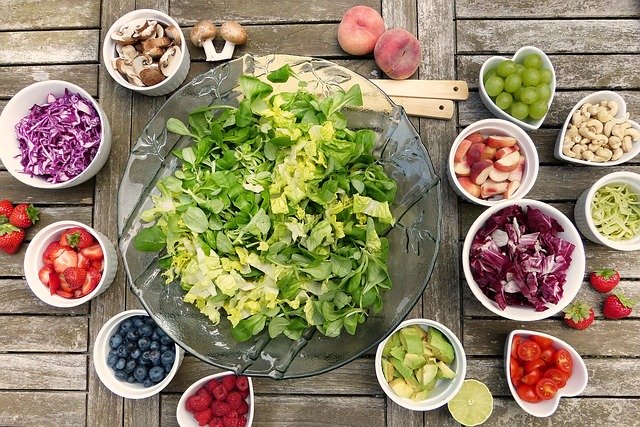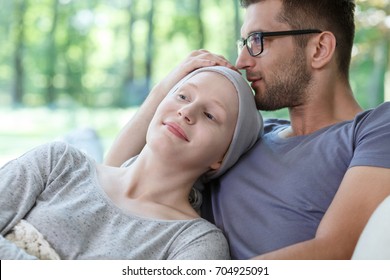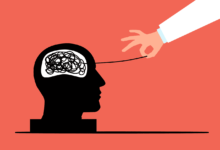
Malignancies are a significant public health problem. The second most important cause of mortality is behind heart disease and blood vessels. Thanks to the early detection of malignancies, survival has increased by about 20% since the 1970s, and malignancies are now considered a chronic disease.
Considering the fact that about 35% of the total diagnosed tumors in men and up to 60% in women in developed countries can be associated with nutrition, it attracts a great deal of attention and interest in patients. Namely, we can start acting on our own diet today.
People with malignant diseases can be divided into those who are in the process of primary treatment and those living with cancer after basic treatment.
Nutrition Recommendations During and After Treatment
The second group includes people who no longer have the disease after treatment, those who continue to receive medication to reduce the risk of disease recurrence, and those whose disease is well controlled and who have few symptoms and who are receiving treatment to treat malignancy as chronic illness.
One third of deaths caused by malignancies can be linked to diet and lifestyle habits such as poor nutrition, physical inactivity, alcohol and tobacco consumption, overweight and obesity.
No list of factors that are in the function of protecting health, preventing disease and developing healthy lifestyles is conceivable without the proper, proper diet and maintenance of adequate weight throughout life.
During treatment and recovery from malignancies, proper nutrition, adapted to the condition of the body, the stage of treatment, and the response to therapies, is extremely important. Pressed with illness, patients often express a willingness to make drastic changes in their diet that, if not balanced, will not bring any improvement. Proper nutrition does not necessarily require drastic changes, but an adjustment to the current state and needs of the organism.
Some of the common questions and issues for patients with malignant eating disorders:
- What food should I eat and what should I not eat?
- What should I take for immunity?
- What should I take to preserve healthy cells during chemotherapy?
- What should I eat to raise leukocytes?
- What should I eat during chemo?
- I have no appetite.
- I eat forcibly because I know I have to.
- I’m losing weight.
- My food is disgusting.
- I’m afraid to eat because that’s how I feed my cancer.
I threw out all the carbs to starve the cancer cells
There are many different expert and non-expert opinions about how people with malignancies should be fed. There are many preparations on the market as well, and it is not always easy to identify what really makes sense when and when, and what is unnecessary, or can even have a negative impact on health.

“I feed cancer with sugar”
The statement that cancer feeds on sugar is extremely simplistic. This is, in fact, an incorrect formulation, because the progression of cancer depends on many factors. When it comes to nutrition, healthy and diseased people are advised to minimize sweets and treat them as an occasional treat. Too much sugar is not welcome in the diet or too much caffeine, alcohol and red meat. Basically too much of anything.
Whoever adheres to the basic principles, without fear, can occasionally be sweetened by something he loves.
Nutrition is an extremely important support in the treatment of malignancies. Generally, preference should be given to plant-based foods, quality sources of protein, vitamins and minerals, complex carbohydrates and quality fats; that is, foods high in nutritional value.
It is important to bring in an adequate amount of fluid, primarily water. Since the nutritional needs are individual, it is advisable to consult with a nutritionist to obtain recommendations tailored to your own needs. The patient should be monitored and continuously adjusted to his current condition and needs during treatment.
Although the diet should be approached on an individual level, here are some tips that can help you stick to a balanced diet:
Try to eat mostly plant-based foods – this means limiting your intake of animal products and including more vegetables and fruits,
Increase your daily intake of fruits, vegetables and whole grains. A good general rule of thumb is to try to eat five servings of vegetables and two servings of fruit a day (one cup eg broccoli is one serving). Also, try eating more beans (such as beans and lentils), if you tolerate them,
Reduce your intake of processed foods, red meat, animal fats and alcohol,
Decrease your intake of high-calorie foods, such as sugary drinks, fast food, and sweets or candy,
Limit your intake of alcohol (eg beer, wine or spirits) to a maximum of two drinks a day for men and one drink a day for women. Drinking alcohol during treatment is not recommended,
Reduce portion sizes and increase the frequency of planned meals,
Reduce snacking and out-of-home meals,
Increase food diversity and ensure adequate nutrient intake,
Nutritional supplements are NOT recommended for people living with cancer without consulting a doctor.
Body mass
In cancer patients, it is extremely important to monitor body weight. Even small weight loss (less than 5%) before treatment is associated with poorer prognosis and decreased quality of life for patients.
Types of treatment for malignancies that affect food intake are surgery, chemotherapy, radiotherapy, and immunotherapy.
During treatment for malignancies, side effects affecting food intake may occur, such as changes in taste and odor, mouth sores, dry mouth, swallowing problems, chronic fatigue, vomiting, diarrhea, constipation, pain, depression, anxiety, and may lead to the malnutrition of the patient resulting in decreased ability of the body to fight infections.
Weight loss and malnutrition (malnutrition) are present in most patients and about 20% of patients die from malnutrition, not the disease itself.
Patients with lung and gastrointestinal cancer (stomach, colon, rectum, liver, pancreas; also thyroid cancer) are at highest risk for malnutrition.
The consequences of malnutrition are an increased risk of complications, decreased response and tolerance to treatment, a decrease in quality of life, a lower survival rate, and an increase in treatment costs.
Consumption of appropriate meals and types of foods before, during and after the malignancy treatment cycle helps the patient maintain strength, better tolerate the side effects of medications and treatments, and contribute to a better quality of life.
Enteral preparations may also be included in the diet for the purpose of preventing weight loss or regaining weight during treatment. The enteral preparations are prescribed by a specialist doctor based on the indications and are available at the pharmacy through a prescription.
Nutrition during chemo
The treatment phase, which includes receiving chemotherapy, is not the time for drastic changes in the diet of the diseased person. It is important to eat and maintain adequate body mass.
When the side effects of the treatment have passed, the diseased person will return to their normal track in nutrition, or, if necessary, gradually introduce changes to make the diet balanced and adapted to the patient’s health.
Chemotherapy has a number of side effects that affect food intake.
 Hot food evaporates, which after chemotherapy, when the patient is more sensitive to odors, may have a disgusting effect, so it is better to eat when the food is slightly cooled.
Hot food evaporates, which after chemotherapy, when the patient is more sensitive to odors, may have a disgusting effect, so it is better to eat when the food is slightly cooled.
Chemotherapy often damages the mucous membranes in the mouth and causes dryness, so very solid foods should be avoided so as not to create additional complications.
Due to the possible change in taste and smell, some foods may not be appropriate for patients, so they should be forced to eat foods that are repulsive at the time.
For nausea, vomiting and diarrhea, frequent small meals, light cooked foods, and fluid and electrolyte supplements are recommended.
It is important to control your body mass. If you notice that you are losing weight, food intake is insufficient and the intervention of a nutritionist and a doctor is required.
Supplementation during chemotherapy
Due to the huge amount of nutrition information, especially about supplementation, patients are often bombarded with advice on what they must / should take to cure themselves.
If they do not find a quality nutrition counselor, their day goes by constantly eating and drinking anything and everything that goes beyond what is needed.
If you do not have a specific digestive problem, intolerance to food, diabetes or any other illness that requires a specific diet, follow the advice recommended to the general population as a healthy lifestyle and diet.
If the side effects are average, the normal and varied diet can be expected to maintain the body in good enough condition to receive the therapy in a timely manner. Nutrition supplements are needed if and when food intake is deficient.
A few days before and after receiving chemo and it is not recommended to take any dietary supplements. If you decide to take one of the supplements, be sure to consult a specialist.
Do not take multiple preparations at the same time, as most do not know how they interact. Some studies have shown that the intake of certain supplements can reduce the effect of therapy.
Fluid intake
Patients must be provided with adequate fluid and electrolyte intake to prevent dehydration and hypovolemia. Ascites, edema, vomiting and diarrhea result in increased fluid and electrolyte loss. Signs and symptoms of dehydration include fatigue, acute weight loss, hypernatremia, dry mouth, dark, strong odor, and decreased urine volume.
Conclusion
Proper, balanced diet, fluid intake and maintaining adequate body weight are of utmost importance during the treatment of malignancies. The diet should be tailored to the current state and side effects, and meet the energy and nutritional needs of the diseased person in order to better tolerate and treat the outcome.
However, don’t expect your diet to cure the disease. To find out if your diet provides you with adequate treatment support, complete the following questionnaire.

